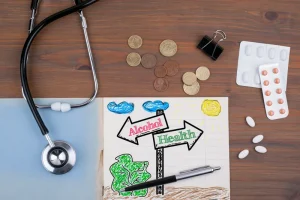
The provider can help adjust the treatment plan and aid long-term recovery. When seeking professional help, it is important that you feel respected and understood and that you trust the person, group, or organization to help you. However, remember that relationships with health care providers can take time to develop. Cognitive–behavioral therapy can take place one-on-one with a therapist or in small groups. This form of therapy is focused on identifying the feelings and situations (called “cues”) that contribute to heavy drinking and managing stress that can lead to a return to drinking.
Staying Healthy
- AUD is characterized by an impaired ability to stop or control alcohol use despite adverse social, occupational, or health consequences.
- Once you are relaxed, they will suggest ways for you to stop drinking.
- Severity is based on the number of criteria a person meets based on their symptoms—mild (2–3 criteria), moderate (4–5 criteria), or severe (6 or more criteria).
- Research shows that most people who have alcohol problems are able to reduce their drinking or quit entirely.
- According to the NIAAA, alcoholism can never be cured, but with the right sort of treatment and follow-up care, it can be effectively managed.
- If you want to take steps to get treatment for your AUD, make an appointment with your doctor.
Along with your treatment for AUD, you may need to seek medical care for other complications you experience. Completing detox does not mean someone is “cured” can alcoholism be cured from their alcohol addiction. They must continue through a treatment program to address their underlying issues and create a supportive recovery system.

The stages of alcohol recovery
Behavioral treatments—also known as alcohol counseling, or talk therapy, and provided by licensed therapists—are aimed at changing drinking behavior. Several evidence-based treatment approaches are available for AUD. One size does not fit all and a treatment approach that may work for one person may not work for another. Treatment can be outpatient and/or inpatient and be provided by specialty programs, therapists, and health care providers. Depending on how bad the person’s dependency on alcohol is, these symptoms can range in severity. A detoxification usually requires a small stay in a hospital or rehabilitation center, although alcoholics who are considered low-risk may be considered for an outpatient detoxification.

How to manage alcohol use disorder
The road to recovering from AUD can be a long process that requires various treatments or therapies. Alcohol use disorder (AUD) is a mental and physical dependence on alcohol. If you’re thinking about suicide, are worried about a friend or loved one, or would like emotional support, the Lifeline network is available 24/7 across the United States. Ultimately, there is no one-size-fits-all solution, and what may work for one person may not be a good fit for someone else. Simply understanding the different options can be an important first step.


Online Learning Courses
- Getting help before your problem drinking progresses to severe alcohol use disorder can save your life.
- Professionally led treatments include behavioral treatments and medications.
- The number of the above criteria you match determines the severity of alcohol use disorder.
- Recovery from alcohol addiction generally follows the stages of abstinence, withdrawal, repair, and growth.
- Motivational enhancement is conducted over a short period of time to build and strengthen motivation to change drinking behavior.
- Treatment can include counseling, medications, residential programs, and support groups.

